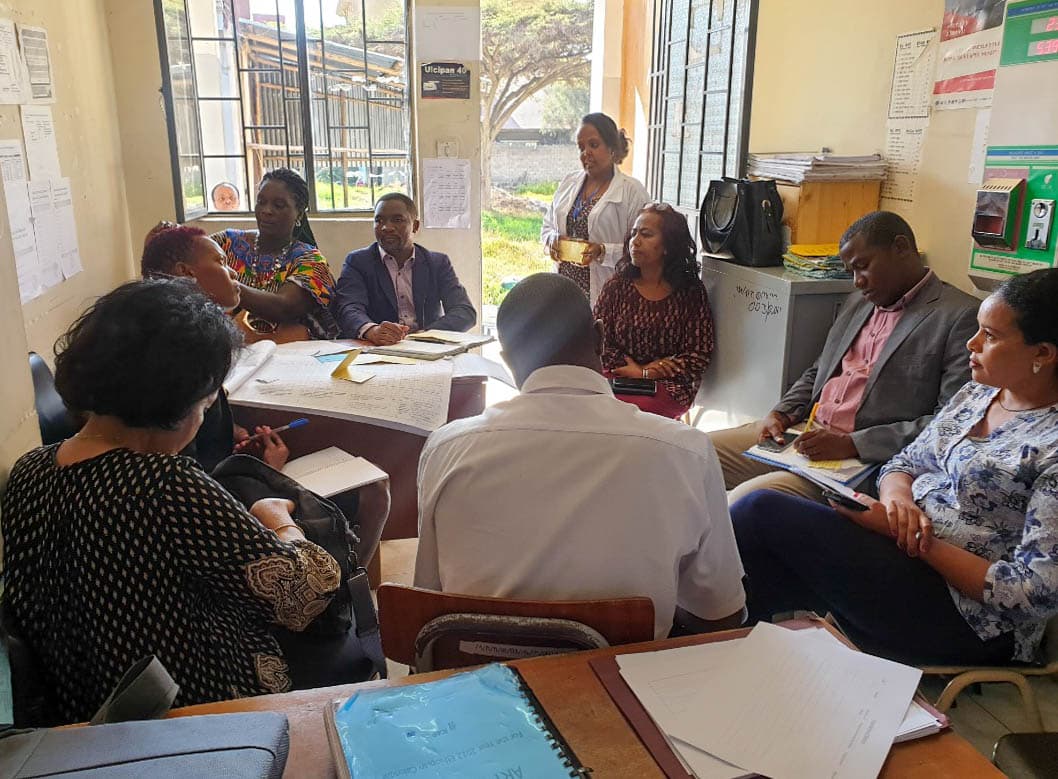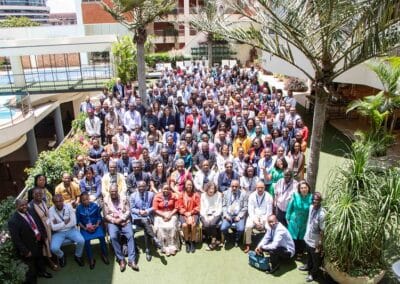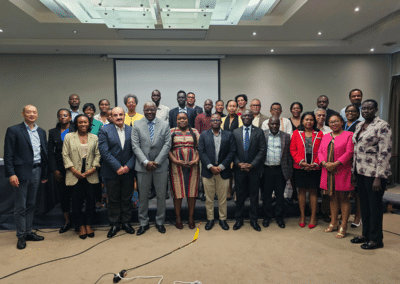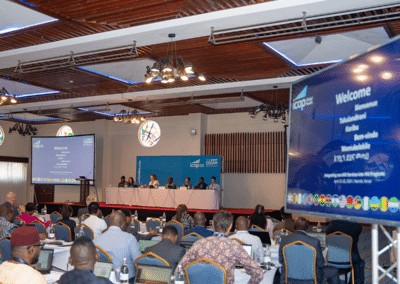Delegates from the Liberia and Uganda National HIV/AIDS Control Programs, Central Medical Stores, and national networks of people living with HIV traveled to Ethiopia to learn how the Ministry of Health (MOH), and implementing partners planned and scaled up the appointment spacing model (ASM) and six multi-month dispensing (6-MMD).
The trip was hosted by the Ethiopian MOH and led by ICAP’s CQUIN project. MOH representatives updated the two visiting delegations on national strategy and DSD implementation in the country, with a particular focus on ASM. The visiting teams also had the opportunity to provide constructive feedback on Ethiopia’s community ART refill group (CARG) model.
Dr. Munir Kassa, chief of staff from the State Minister’s office welcomed the country teams from Liberia and Uganda, during a multisector stakeholders meeting attended by stakeholders from Ethiopia’s MOH, WHO, and other implementing partners. During the visit, the Network of HIV Positives in Ethiopia (NEP+) described their role and engagement in DSD design, implementation, and monitoring and evaluation. PEPFAR implementing partners shared practical lessons and experiences from implementation, and the Ethiopia Pharmaceutical Supply Agency (EPSA) shared their drug quantification tools, and approach to procurement and stock management related to 6-MMD.
The teams also visited three health facilities implementing 6-MMD. At the Zeweditu Memorial Hospital, Nefase Silk Health Centre, and Saries Health Center the visiting teams reviewed client data and data collection tools, appointment spacing register, tally sheets, a tool for 6-MMD calculation-forecasting, and reporting templates.
“There is clear evidence that the ASM 6-MMD model implemented by Ethiopia has led to significant improvement in the key outcomes of the HIV/AIDS program; including increased ART coverage, improved retention, appointment keeping, and improved viral load access and suppression,” said Dr. Joseph Kabanda from CDC Uganda during a team debrief meeting after the site visits.
“This learning visit to Ethiopia has exposed me to new insights about 6-MMD, which is anticipated to improve treatment outcomes for key populations when duplicated in the Ugandan health care system,” said Sunday Izidoro representative from the National Medical Stores, Uganda.
“It was amazing to see how much knowledge was exchanged between the visiting countries, said Martin Msukwa, CQUIN’s project director for OpCon in observation on his first south-to-south learning exchange. “I was surprised to see how much the host countries were learning from the visitors as well,” he added.






